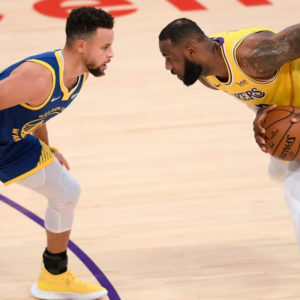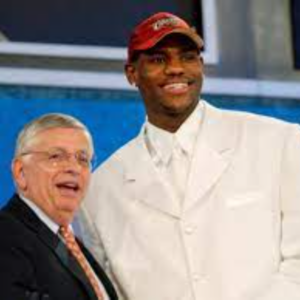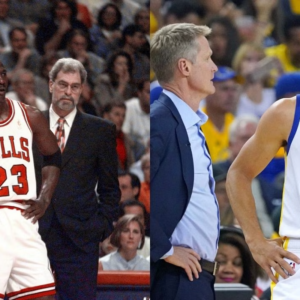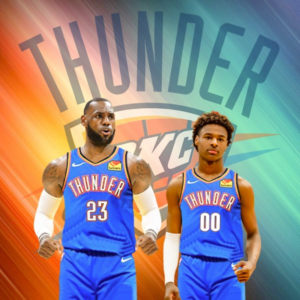The first major new superhero project of 2022 doesn’t involve Spider-Man, Batman, Wonder Woman, or even that weirdo Morbius; it’s Peacemaker, an HBO Max series starring John Cena as a ruthless assassin from the DC Comics multiverse seemingly trying to live up to his formerly ironic name.
The series follows up a busy 2021 for actor-wrestler Cena: He debuted his version of Peacemaker in The Suicide Squad, did another broad comedy with Vacation Friends, hosted Wipeout on TBS, and served as the antagonist in the ninth Fast And Furious film. In the latter, he was essentially stepping into a role Dwayne Johnson played in Fast Five, and given Cena’s other career choices, it would be easy to assume he’s emulating Johnson’s wrestling-to-media-star career path (give or take a term as Scorpion King).

To some degree, that’s probably true. But at the same time, Cena and Johnson are both performing moves as well-practiced as a piledriver—approaches that have worked, at least fleetingly, for a number of wrestlers and mixed martial arts athletes pursuing big-screen careers. As these showmanship-heavy, branding-friendly sports have become more mainstream and produced more stars, certain go-to maneuvers remain as both a comforting fallback and, sometimes, a series of limitations.
The most obvious path for ambitious wrestlers and MMA fighters is to take a shot at becoming an old-school action star. To borrow another sport’s metaphors, it’s the action-movie equivalent of breaking into the minors with an eye on the majors.
How Schwarzenegger and Stallone opened the door
For a while, stepping into action movies unaided by excess special effects or fantastical elements felt like a competition over who might succeed the likes of Arnold Schwarzenegger or Sylvester Stallone—a prize Johnson unofficially won in the opening scene of The Rundown, when Arnold himself appears in a torch-passing cameo, telling Johnson’s character to “have fun.”
Not to be overshadowed by his on-and-off rival’s kingmaker status, Stallone seemed to be holding tryouts for next-generation tough guys with the Expendables series, hiring MMA champ Randy Couture as part of his all-star ensemble, only to, characteristically, favor his own stoic-old-guy storylines over any of the younger men of action.
Even when not depending on the magnanimity of established stars, though, the solo-action route has its pitfalls. The kinds of pecs-and-artillery movies that dominated in the 1980s have long fallen out of vogue, yet slickening the proceedings with too many special effects threatens to alienate a core audience who would presumably like to see the actual performer simulate their ass-kickings directly. Athleticism also needs not be quite so, well, muscular: Performers as varied as Jason Statham (a former swimmer) and Liam Neeson (a former prestige actor!) can engage in fisticuffs and flinty movie-star charisma.
Yet a solid role, decent action, and the right wrestler can come together and big audiences still may not show up in career-making numbers. As good a fit as Johnson was for early-2000s movies like The Rundown and Walking Tall, they weren’t especially big hits. Nor were Cena’s early vehicles like The Marine or 12 Rounds.
There’s also a question of balancing that relatably human feeling with an outsized physical presence. Roddy Piper makes a surprisingly convincing everyman figure in John Carpenter’s They Live—not precisely a pure wrestler-as-action-star vehicle, but a genre movie that makes great use of Piper’s athletic chops in a knock-down, drag-out fight scene between Piper and Keith David.
The key to this scene’s success is that while Piper looks more than capable of issuing a beatdown, he shows plenty of vulnerability beforehand, playing a rugged, strong, yet essentially human-sized guy who’s down on his luck. For all of his famous lines about kicking ass and/or chewing bubblegum, Piper never feels like an inevitability as he labors to take down a vast alien conspiracy.
The cautionary tale that is Gina Carano
A more postmodern spin on the fighter-as-actor concept is Steven Soderbergh’s Haywire, a 2012 vehicle for Gina Carano that—being a Soderbergh picture—serves as both a genre piece and a sort of meditation on how a figure like Carano commodifies her body and physicality. (It’s no accident that it came out the same year as Soderbergh’s Magic Mike; it’s basically Magic Mike for savagely administered beatings.)

After Haywire, Carano did several more action movies of a more traditionally low-rent DTV quality, but given her beautifully made debut, her undercard fights in Fast & Furious 6 and Deadpool, and a featured role on The Mandalorian, she was well-positioned to parlay a limited range into one of the stronger post-MMA careers. That, of course, came to a halt when Carano compulsively posted fringe right-wing views on social media and Lucasfilm cut ties with her.
Carano’s stubborn refusal to contain a litany of simultaneously hostile and half-baked beliefs illustrates another hazard of crossing over from wrestling or MMA into film: The kind of caricatured antics or bravado that might play well to wrestling or MMA fans can become unnerving or off-putting when applied to real-world views. Suddenly, Carano wasn’t shit-talking a rival athlete; she was dismissing entire groups of people, from trans folks to those who wear masks during a deadly pandemic.
Her actions may well encourage the relegation of future MMA-to-film transplants to quieter henchman roles with a less glaring spotlight. (Ronda Rousey already seems to have been consigned to this niche.) It’s one reason among many that Soderbergh’s use of Carano may not be especially repeatable; Haywire has an unusually perceptive combination of letting its star’s limitations drive the action while controlling the environment around her.
There’s a less delicate element of control to the way that these figures are often cast as the poor man’s version of action stars—the featured henchman/rival/sidekick role. Sometimes, this work can function as its own form of iconography; Jesse Ventura may not have a vast and storied movie career, but he’ll always have Predator (and The Running Man, and Demolition Man), just as Mr. T will always have his delightful heel turn in Rocky III.
When in doubt, find a franchise
In recent years, this kind of part can mean inducting the actor into franchise royalty: Declaring Cena worthy of taking on Fast-master Vin Diesel (a man who he could presumably render unconscious single-handedly in real life) has a certain big-money prestige. Dave Bautista’s typical James Bond antagonist part in Spectre still has him playing a henchman for an Oscar-winning director, opposite Daniel Craig.
And even before Dwayne Johnson was known as “franchise Viagra” for dropping into series like Fast & Furious or G.I. Joe, he was following this model; his very first film role was as the aforementioned Scorpion King, a secondary antagonist whose appearances bookend The Mummy Returns.
Perhaps the most popular move in the tough-athlete repertoire is to simulate a loss of control via comic roles that intentionally undermine and spoof their image. This, too, can be traced back to Arnold and his partnership with director Ivan Reitman on movies like Twins and Kindergarten Cop, which preceded ’80s WWF icon Hulk Hogan’s turns in the likes of Suburban Commando and Mr. Nanny).
Saddling a burly man with kids remains a go-to: Witness Cena in Playing With Fire, Bautista in My Spy, and Johnson in The Game Plan (among others). All of these guys have done more adult-oriented comedy, too, often to great effect: Johnson perfectly satirizes the cocksure ridiculousness of movie cops in The Other Guys, and Cena has never been more likable than his flummoxed-parent turn in Blockers. Hell, Hogan’s most indelible big-screen moment comes when he hollers threats at a bunch of projection-room monsters in Gremlins 2.
Bautista’s role as Drax in the Guardians Of The Galaxy films would seem to fit that mold: a more comic role that allows him to do some of his best work. Looking more closely at his filmography, though, Drax also fits into another type of career Bautista seems to be cultivating, one of the least likely to be chosen by (or afforded to) wrestlers or MMA athletes: that of a genuine character actor, not just supporting muscle for hire. His supporting-part collaborations with director Denis Villeneuve suggest that he’s willing to go smaller, and sometimes a lead performance like Army Of The Dead will have more in common with a Humphrey Bogart role than Arnold’s leftovers.
It’s not enough to just be a brand
Johnson has also flirted with these kinds of parts, during his mid-2000s try-anything phase where he was an unexpected highlight of the otherwise dire Be Cool and fit remarkably well into a cast of misfits and ex-Saturday Night Live stars in Southland Tales. When he does his umpteenth variation on the virtuously tough-love daddy figure he more commonly plays today, it’s hard not to miss that element of unpredictability. If actual wrestlers and MMA fighters aren’t going to go for The Wrestler–level reflection, at least they can go for Drax-like range.
In The Suicide Squad, Peacemaker feels like a Drax-like part for Cena, part of a franchise while signaling his willingness to work as an actor rather than a brand. It’s self-mocking, yet more substantial than a simple walk-on spoof; it features a heel turn that isn’t simple henchman work; it’s a major role, but as part of an ensemble alongside plenty of other important characters.
The Peacemaker series brings Cena back to the center of the ring, and it may pay off for him both creatively and commercially. What will really keep his career interesting, though, is continuing to hopscotch around different types of movies, rather than settling into a blockbuster groove. Not every wrestler or MMA star can be Dwayne Johnson—and not everyone, not even Johnson himself, necessarily should be.





